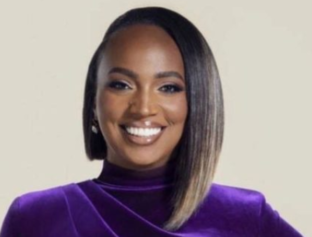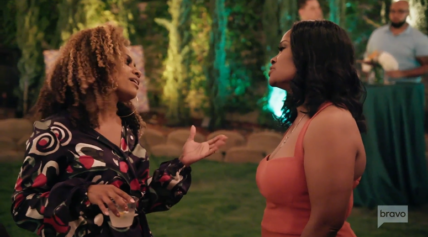A Barbie-themed brunch hosted by Jazmin Johnson on “Married to Medicine Los Angeles” turned into a discussion about colorism.
The March 17 episode saw Dr. Noelle Reid explain how dolls can impact a child’s mind by relaying what she’s seen in her own daughter, Gabby.
“When she was 3 or 4 years old, she actually had an aversion to brown dolls,” Reid explained. “She didn’t want a doll that had curly, kinky hair. A doll is an example of society’s norms of what the epitome should be for beauty. Obviously, what she was seeing was that, this doll that she was coveting may not look like me so now, let me try to assimilate. And, actually, that’s what she did because at 4 years old, she asked me to dye her hair blond.”
Reid refused and instead tried to ensure her daughter knows that her looks are perfectly OK.
On the flip side of the conversation, Dr. Britten Cole, who is biracial, said she wanted her hair “to be kinky.”
“My mom bought me dolls that looked like my family. Everyone was brown,” she explained. “To say that that doll is what causes your daughter to have these ill feelings about her self-esteem or who she is, you can’t blame a doll for that.”
Cole said in a confessional that growing up on the South Side of Chicago with a Black mother and a white father made her consider herself Black and “I looked different.” She didn’t see herself as biracial and dealt with criticism as it came.
However, Reid remained firm on her point, explaining that “imagery is powerful” citing studies on the way representations can affect self-image.
Acknowledging how dolls can negatively affect both light-skinned and darker-skinned women, Asha Kamali Blankinship explained that the playthings can conjure up feelings of being the outsider on both sides.
“Black beauty is not valued,” she says. “We are always having to prove and suture ourselves to the white male aesthetic. … We’re outsiders.
“Like, Jazmin, you were an outsider growing up, right?” Blankinship continues, addressing Johnson’s biracial background. “You were an outsider, I was an outsider. So sometimes, dolls represent something that contextually brings up that outsider feel for us a women of color.”
The conversation on air provoked viewers to share their own memories and feelings about how different dolls affected them growing up.
“My momma cut up about the white dolls too. She didn’t play it. #Married2MedLA””
“I had white dolls, but it didn’t bother me 🤷🏾♀️ #Married2MedLA”
“Interesting assessment #DrNoelle. Her daughter is beautiful! But honestly are dolls negative? I don’t know. Come on Asha! Preach! #Married2MedLA.”
“cus ur daughter had issues with her skin thats the dolls fault ?? 🙄bye lady #Married2MedLA”

